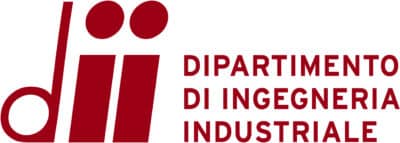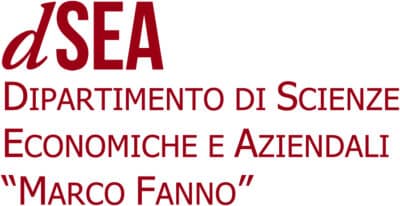

The First-level Short Specialisation Degree in Open Innovation Management provides competences to implement Open Innovation processes for companies and public/private institutions, from the idea to the implementation of an entrepreneurial start-up or (re)start-up project, and the definition of the reference network. Particular attention will be devoted to the topics of digital transformation and environmental/social sustainability. The Master arises from the long innovation generation tradition of the University of Padua, which boasts several awards, and is one of the forerunners in implementing technology transfer and Third-Mission activity processes.
The First-level Short Specialisation Degree, now in its third edition, renews itself, by suggesting an educational project developed in two specializations to choose from:
- Innovation in the industrial sector
- Innovation for Public Administrations and Smart Cities
The interdisciplinary educational model entails
the alternation of seminar lectures,
professional testimonials and hands-on-experimental activities.
“Thinking is easy, acting is difficult, and to put one’s thoughts into action is the most difficult thing in the world,” Goethe.
The First-level Short Specialisation Degree in Open Innovation Management provides full-range training on innovation-related topics, by putting together professionals, entrepreneurs, professors and researchers, and providing in-depth knowledge on the following topics:
- Management;
- Science, technology (and emerging technologies in particular) and sustainability;
- Marketing and communication;
- Network building and maintenance;
- Design and art;
- Design thinking;
- Legal aspects;
- Funding;
- EU project management.
During the lessons, theoretical insights are interspersed with hands-on practice, project works and digital conversations with high-profile testimonials, which the students can complete both in-person or through the e-learning platforms of the University of Padua.
The First-level Short Specialisation Degree in Open Innovation Management is addressed to professional, entrepreneurs and
CEO, covering executive roles in the areas of governance, management, planning, strategy, ICT, logistics, communication and marketing, innovation and development, sustainability and corporate social responsibility, as well as young newly-graduates who wish to work in those fields.
The Master provides training for several key roles, within enterprises and private institutions, companies and public bodies and no-profit associations, or as external consultants:
“INNOVATION IN THE INDUSTRIAL SECTOR” SPECIALIZATION
- Research & Development Office Manager;
- Digital Transformation Process Manager;
- Open Innovation Manager;
- Corporate Strategy Innovation Manager;
- Communication & Marketing Development Manager;
- Business Development Manager;
- CEO or Top Manager with a strong propensity toward innovation and sustainability.
“INNOVATION FOR PUBLIC ADMINISTRATIONS AND SMART CITIES” SPECIALIZATION
- Manager capable of supporting/leading PA toward planning sustainable territorial development policies, focused on the improvement of the overall well-being, through highly innovative methods and tools.
The theoretical framework of the First-level Short Specialisation Degree in Open Innovation Management draws on technological innovation, strategical innovation, cultural research in art, design literature, sociology, market trends, and the application of technology transfer, knowledge transfer and design thinking methods.
The course includes both cross-curricular lessons, shared by both specializations, and dedicated specialist lessons. Both specializations include hands-on and test portions, dedicated to the development of a project work, and partially guided by a multidisciplinary mentor team and on-field activities.
CROSS-CURRICULAR LESSONS
- Open Innovation – Ecosystems
- Open Innovation – Genesis, management tools, processes
- Culture of innovation
- Innovation and society
- Business models
- Business plans
- Introduction to Design Thinking methods
- Tools and methods to CREATE innovation
- Digital Transformation
- Virtual reality, augmented reality, immersive innovation technologies (immersive experience with VR visors)
- Communicating innovation
- AI, GDPR and Big Data
“INNOVATION IN THE INDUSTRIAL SECTOR” SPECIALIZATION
- Open Innovation – Business models
- Circular economy as a tool to create value and innovation
- IP Rights and Open Innovation
- Advanced planning – Collaborative and Open Innovation projects in Horizon Europe Digital Transformation
- Digital experience & marketing
- Data enhancement and definition of legal relationships in new online business models
- Fundamentals of security and privacy in modern and future technology and innovation communication
- Jazz & management
“INNOVATION FOR PUBLIC ADMINISTRATIONS AND SMART CITIES” SPECIALIZATION
- Ecosystems and relationships in territorial development
- Zero-waste cities – Sustainable development models
- ICT strategies and digital agenda
- Urban innovation and social inclusion
- Urban energy transition systems
- Public-private partnerships and crowdsourcing for PA
- Smart cities and big data – Legal aspects
- Smart cities and digital transformation
It is a strategy opposed to the closed innovation model, guided by the R&D division of enterprises or institutions. It broadens the range of innovation sources, by drawing from both internal and external resources, exceeding organizational boundaries, and including a network of partners, clients, opinion leaders, suppliers, universities and incubators in the innovation process.
The steps to start an Open Innovation process include:
- Finding innovative ideas and potential partners;
- Promoting the creation of an internal culture of innovation and entrepreneurial attitude;
- Acquiring strategic competences to start digital transformation and sustainability processes – the so-called green and blue transformations;
- Starting Open Innovation processes;
- Mastering processes and being able to launch Corporate VC and Corporate Accelerator initiatives.
When implementing Open Innovation, it is essential to prevent two recurring risks:
- the theatre of innovation, i.e. launching a digital transformation strategy, without supporting it through a sufficient budget;
- the leap of faith, i.e. tapping into an allocated budget, without assessing the availability of the skills required to apply the right innovation strategy, or without developing a suitable organizational culture.
The first edition of the MOIM Master highlighted the need to CREATE innovation in the Italian territory, by working in a synergistic way, expanding the creative action within the cultural, economic and social context of reference enterprises and professional businesses. During the entire year, there were many opportunities to interface with the professors, managers and entrepreneurs who co-organized the course. There were also numerous immersive occasions and prestigious lecturers, such as the TEDx Padova convention, SMACT Digital Transformation Training, virtual reality hands-on activities, lessons held in partnership with PwC, and the launch of SMACT Live Demo in Padua.
The second edition and third edition confirmed the enthusiasm and interest on the educational content and methods, with a significant increase of students enrolled and corporate partnerships.
This helped us to create a reference Community, involving enlightened entrepreneurs, researchers, professors, opinion leaders and Master students, who gathered especially during the “Dîner-débat”, prestigious networking and comparison dinners, on stimuli offered by selected lecturers, in the amazing setting of Palazzo Sambonifacio, in the heart of Padua.
The general ranking of merit for the academic year 2025/26 will be published on the Italian page of this Master according to the timing provided in the Call.
Single course
Information
FAQ
The MOIM Master’s in-person lectures will be held at the conference room of SMACT Competence Center Fiera di Padova, via Niccolò Tommaseo, n. 59, 35131, Padua.
A perfect place to MAKEinnovation in an Open Innovation perspective!
Other venues or guided tours to places of interest may also be considered in relation to specific educational activities.
The First-level Short Specialisation Degree’s program has 70% compulsory attendance and is designed to be easily attended even by working professionals.
Classes will be held with an indicative frequency of 2 weekends per month, in dual synchronous and asynchronous mode and with innovative methodologies such as some lessons in Flipped Classroom or others will use Virtual and Augmented Reality Visors.
Class recordings will be available for enrollees on the course’s digital platformLinkedin page
https://www.linkedin.com/company/moimpadova/

